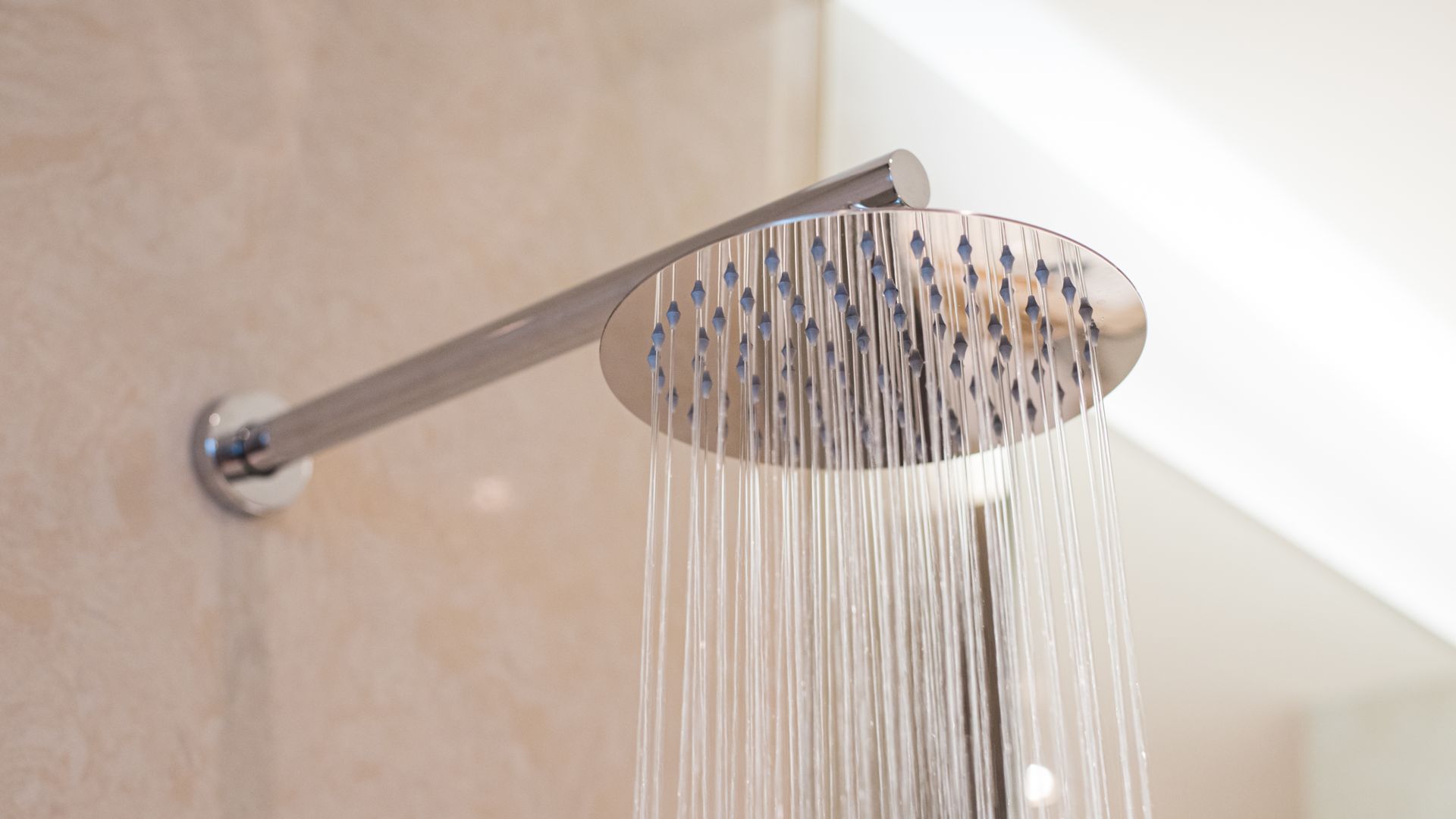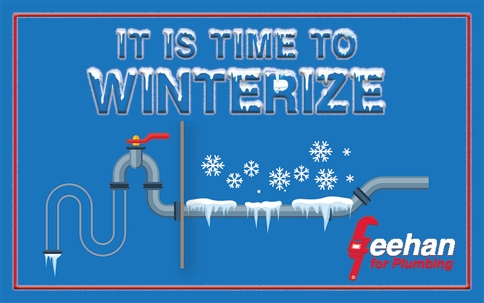Winterize Your Home to Prevent Frozen Pipe Problems
Every winter we get frantic calls from homeowners with frozen pipes. The Feehan Plumbing & Heating team solves the problem as quickly as possible. But you can prevent the emergency call from happening by winterizing your home.
When temperatures plummet, the water that supplies your home’s faucets and fixtures is in danger of freezing inside your pipes. Because water expands as it turns to ice, frozen pipes are prone to bursting, which can result in costly water and plumbing damage throughout your home.
At the highest risk of freezing are pipes that run against exterior walls and those in unheated or uninsulated places, such as the attic, basement, or garage. Before the temperatures outside dip below freezing, it’s important to understand how to prevent frozen pipes and take the necessary steps to winterize your home.
Before freezing weather comes to town take these prevention steps:
- Know where your home’s water shut-off valve is located. Normally, the
valve is in the basement or crawl space, on a wall facing the street. - Make sure water pipes on exterior walls and in unheated basements
are insulated - Disconnect, drain, and store your garden hoses.
- Close any shut-off valves that supply outdoor hose bibs and open the
faucet outside to drain the line.
Keep it open throughout the winter. - Inspect your home for any air leak cracks or openings that could let in cold air.
- Seal any holes around the piping in the interior or exterior walls.
When freezing weather happens:
- Open cabinet doors leading to exposed pipes (such as sinks), so your home air can warm them.
Keep attached garage doors shut.
Locate a faucet farthest from your home’s water shut-off valve allowing a very slow drip will
keep water molecules moving. This reduces the chance your pipes will freeze. - Keep your thermostat set to at least 55°F and above 65°F when leaving your house or
business for several days.
When your pipe is frozen:
Though water freezes at 32ºF, the water inside the pipe normally doesn’t freeze until it is below 20ºF. Pipes with little or no insulation could freeze when the outside temperature dips under 20ºF. When the water expands and freezes, it is troublesome for pipes. The pressure grows too large for the limited space to handle, which results in a pipe bursting. When this happens, call your plumber or try to:
- Thaw the pipe as soon as possible.
- Remember (once thawed) to shut off the water or test the shut-off valve
before water suddenly gushes from the pipe. - Thaw pipes slowly because when warmed too fast it may break.
- Using a hair dryer pointed at the frozen area of the pipe is appropriate.
- You can also apply heat to the frozen section of the pipe, using a heating pad,
space heater, or warm, damp towels - NEVER use a blow torch is not.
If you are unable to access or safely thaw the frozen pipe, call a licensed plumber like Feehan Plumbing & Heating right away.
Frozen pipes are problematic, but any home water leak can be a hazard. We have seen too many instances where a leak has been left undetected for far too long and ultimately caused significant damage to carpeting, flooring, drywall, and several other areas. This is particularly troublesome because there are several leaks that can be easily prevented with a simple repair. If your home is suffering from a water leak, get in touch with Feehan Plumbing & Heating today!
Plumbing problems can happen to anyone, anytime. If your home in the Delaware Valley needs plumbing or heating repairs, think Feehan first. We are always available for professional garbage disposal repair and replacement services.

